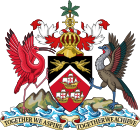
The politics of Trinidad and Tobago function within the framework of a unitary state regulated by a parliamentary democracy modelled on that of the United Kingdom of Great Britain and Northern Ireland, from which the country gained its independence in 1962. Under the 1976 republican Constitution, the monarch was replaced as head of state by a President chosen by an electoral college composed of the members of the bicameral Parliament, consisting of the Senate and the House of Representatives.

A member of parliament (MP) is the representative in parliament of the people who live in their electoral district. In many countries with bicameral parliaments, this term refers only to members of the lower house since upper house members often have a different title. The terms congressman/congresswoman or deputy are equivalent terms used in other jurisdictions. The term parliamentarian is also sometimes used for members of parliament, but this may also be used to refer to unelected government officials with specific roles in a parliament and other expert advisers on parliamentary procedure such as the Senate parliamentarian in the United States. The term is also used to the characteristic of performing the duties of a member of a legislature, for example: "The two party leaders often disagreed on issues, but both were excellent parliamentarians and cooperated to get many good things done."

The president of the Republic of Trinidad and Tobago is the head of state of Trinidad and Tobago and the commander-in-chief of the Trinidad and Tobago Defence Force. The office was established when the country became a republic in 1976, before which the head of state was the Queen of Trinidad and Tobago, Elizabeth II. The last governor-general, Sir Ellis Clarke, was sworn in as the first president on 1 August 1976 under a transitional arrangement. He was formally chosen as president by an electoral college consisting of members of both houses of Parliament on 24 September 1976, which is now celebrated as Republic Day.
In the Parliament of Australia, a casual vacancy arises when a member of either the Senate or the House of Representatives:

The People's National Movement (PNM) is the longest-serving and oldest active political party in Trinidad and Tobago. The party has dominated national and local politics for much of Trinidad and Tobago's history, contesting all elections since 1956 serving as the nation's governing party or on four occasions, the main opposition. It is one out of the country's two main political parties. There have been four PNM Prime Ministers and multiple ministries. The party espouses the principles of liberalism and generally sits at the centre to centre-left of the political spectrum.
Some parts of the Government of Thailand are selected through democratic elections. These include the House of Representatives of Thailand,, local Administrations, Governorship of Bangkok and national referendums. Thailand has so far had 28 general elections since 1933; the last election was in 2023. Voting in elections in Thailand is compulsory. All elections in Thailand are regulated by the Election Commission of Thailand.
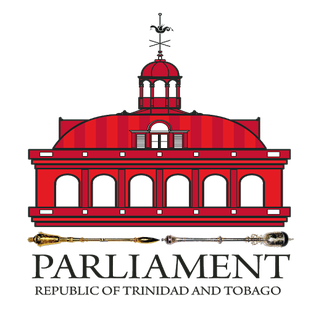
The Parliament of Trinidad and Tobago is the legislative branch of the Government of Trinidad and Tobago. The Parliament is bicameral. Besides the President of Trinidad and Tobago, it is composed of the House of Representatives, which is composed of the Speaker of the House of Representatives in addition to 41 directly elected members serving a five-year term in single-seat constituencies, and the Senate which has 31 members appointed by the President: 16 Government Senators appointed on the advice of the Prime Minister, 6 Opposition Senators appointed on the advice of the Leader of the Opposition and 9 Independent Senators appointed by the President to represent other sectors of civil society. It is at present the only parliament in the world with an incumbent female President, President of the Senate, Speaker of the House of Representatives and Leader of the Opposition and made history by appointing the Caribbean's first and only transgender parliamentarian on 15 February 2022. As of 20 April 2021, there are only 24 female members, or 32.9% and eight members born in Tobago or 11.0%.

The Democratic Labour Party was the main opposition party in Trinidad and Tobago from 1957 till 1976. That party was the party which opposed the People's National Movement (PNM) at the time of Independence. After several splits brought about by leadership struggles, the party lost its hold on the Indo-Trinidadian community in the 1976 General Elections and was displaced in parliament by the United Labour Front under the leadership of Basdeo Panday, a former DLP senator. The party was the representative of the ethnic Indian community in the country; however Indian Muslims and Christians were said to be less loyal to the party than Indian Hindus.
The Legislative Council of Trinidad and Tobago served as an advisory commission to the governor in British-ruled Trinidad and Tobago, between 1831 and independence in 1962. The Legislative Council consisted of a mixture of appointed and elected members. After the introduction of elected representation in 1925 the council consisted of 13 "unofficial" members, seven elected and six appointed. Over time the balance between elected members and appointed members changed. In 1956, the council consisted of 24 elected and 7 appointed unofficial members.

Keith Christopher Rowley, is a Trinidadian politician serving as the seventh prime minister of Trinidad and Tobago, first elected into office on 9 September 2015 and again following the 2020 general election. He has led the People's National Movement (PNM) since May 2010 and was Leader of the Opposition from 2010 to 2015. He has also served as the Member of the House of Representatives for Diego Martin West since 1991. He is a volcanologist by profession, holding a doctorate in geology, specializing in geochemistry.

Federal elections were held in the West Indies Federation for the first and only time on 25 March 1958. The result was a victory for the West Indies Federal Labour Party, which won 25 of the 45 seats in the House of Representatives.
Camille Robinson-Regis is a Trinidadian and Tobagonian lawyer and politician, representing the People's National Movement. She was first elected as a Member of Parliament in the House of Representatives for Arouca South in 1992 and is the current Member of Parliament for Arouca/Maloney. She is the Minister of Planning and Development, the Lady Vice-Chairman of the People's National Movement, and the Leader of Government Business in the House of Representatives.
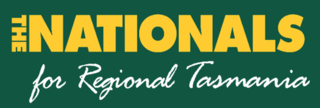
The Tasmanian Nationals are a political party in the Australian state of Tasmania, aligned with the National Party of Australia. The party is not currently registered with the Tasmanian Electoral Commission, and is not separately registered with the Australian Electoral Commission, unlike the other state branches of the Nationals.
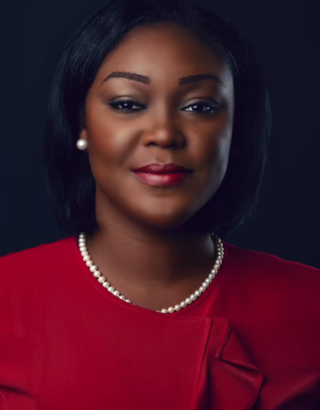
House of Assembly elections were held in Tobago on 25 January 2021 where 12 members were elected in the eleventh election since the Assembly was established in 1980. This election marked the first time in history that both parties elected, the People's National Movement (PNM) and Progressive Democratic Patriots (PDP) won an equal number seats of 6-6, despite the PNM winning the popular vote, resulting in a deadlock and a constitutional crisis with both political parties and Prime Minister Keith Rowley seeking senior counsel advice on the way forward. This election was the first time after 20 years in power that the PNM lost its absolute majority. This election also marked the first time a female political leader was elected to the Assembly and the first time a woman led a major political party or a political party with representation in the Assembly, following the 2020 Tobago Council of the People's National Movement leadership election where Health Secretary, councillor and former Trinidad and Tobago Ambassador to Costa Rica and former Deputy Chief Secretary of Tobago Tracy Davidson-Celestine made history by being elected as the PNM's first female political leader at the regional or national level and one of the first bilingual political leaders in the country's history. If Davidson-Celestine and the PNM were to be elected with a majority to their sixth consecutive term in office, she would have made history, becoming the first female Chief Secretary of Tobago. The election was held alongside local by-elections in Trinidad in which the PNM and UNC retained two districts and the PNM losing one to the UNC.
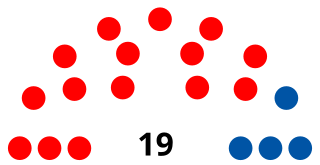
The Federal Parliament of the West Indies Federation was the bicameral legislature in West Indies Federation from 1958 to 1962. It was formally made up of two houses, an appointed Senate and an elected House of Representatives.
James Alpheus Alexander Biggart was a Tobagonian pharmacist who represented Tobago in the Legislative Council of Trinidad and Tobago from 1925 until his death in 1932. He was the first Black pharmacist in Tobago and the first person elected to represent Tobago on the Legislative Council.
Ramsaran Lionel "Sarran" Teelucksingh was a Trinidad and Tobago businessman and politician. The first Indo-Trinidadian elected to the Legislative Council, Teelucksingh represented the county of Caroni from 1925 until 1946 and was active in the leadership of the Trinidad Workingmen's Association (TWA), Trinidad Labour Party (TLP), and the East Indian National Congress (EINC).
Sir Henry Albert Alcazar, KC was a Trinidadian politician who served as the mayor of Port of Spain and a member of the Legislative Council of Trinidad and Tobago. A reformer, Alcazar campaigned for the inclusion of elected members in the Legislative Council. In the aftermath of the 1903 Water Riots, Alcazar successfully defended people charged with inciting a riot. In 1915, he was appointed to the Executive Committee which advised the Governor of Trinidad and Tobago, and was knighted in 1918.
The 2022 People's National Movement internal election, the last one for the PNM before the subsequent general election, took place over three days: November 26 and 27 and December 4, 2022. The current party leader and Prime Minister Keith Rowley had indicated he would most likely not seek to lead the party into the next general election. Rowley made these comments in his victory speech on the night of the 2020 Trinidad and Tobago general election, where the PNM secured a second mandate under his leadership but with the slimmest majority for a government in two decades. However, he announced that he would seek another term as the party's leader in October 2022. In the 2020 general election campaign, he indicated that he would have stood down had the PNM lost. The election followed the 2022 Tobago Council of the People's National Movement leadership election. Keith Rowley won re-election by an overwhelming majority with a low voter turnout with 9,111 out of 105,894 eligible party members voting.
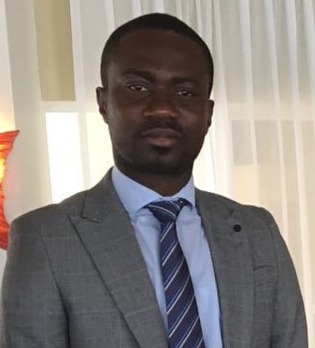
Snap House of Assembly elections were held in Tobago on 6 December 2021 to elect all 15 members of the Tobago House of Assembly (THA). The election was called following a deadlock created by the January 2021 elections which resulted in a tie between the People's National Movement (PNM) and the Progressive Democratic Patriots (PDP), with both parties winning six seats. As a result, the number of seats in the legislature was increased from 12 to 15 to avoid ties.
